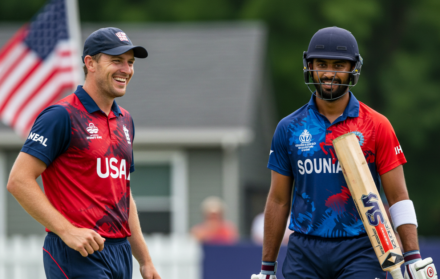
The Most Successful Cricket Umpires in History
In the realm of cricket, umpires play a crucial role in maintaining the integrity and flow of the game. Their decisions can significantly impact the outcome of matches, making their role indispensable. This article will explore the most successful cricket umpires in history, highlighting their contributions to the sport and the legacy they have left behind.
A fundamental aspect of umpiring is a thorough understanding of the rules and nuances of the game. Umpires need to be well-versed in the cricket rules and scoring to make accurate and fair decisions on the field. This foundational knowledge is critical for their success and credibility.
Many of the most successful cricket umpires have officiated at iconic venues like The Oval and Lord’s Cricket Ground. These historic grounds have witnessed countless legendary matches and pivotal moments in cricket history, with umpires at the heart of the action, ensuring fair play and upholding the spirit of the game.
The evolution of cricket and its history provide a rich context for understanding the significance of umpiring. Delving into the history and evolution of cricket offers insights into how the role of umpires has developed over time, adapting to changes in the sport and maintaining its integrity.
Another aspect that has shaped the careers of many top umpires is their ability to handle high-pressure situations and make split-second decisions. The challenges and rewards of umpiring in cricket are well documented in various cricket documentaries, which often highlight the critical role umpires play in the game.
Umpires’ expertise is not limited to understanding the rules and making decisions. Their insights and knowledge also contribute to the strategic aspects of the game. Understanding cricket strategies and tactics helps umpires anticipate and manage different game situations, further solidifying their importance in the sport.
In conclusion, the most successful cricket umpires in history have earned their place through a combination of deep knowledge of the game, experience at iconic venues, and the ability to handle the pressures of officiating. Their contributions have not only ensured fair play but have also enriched the game’s legacy, making them an integral part of cricket’s enduring appeal.
Dickie Bird
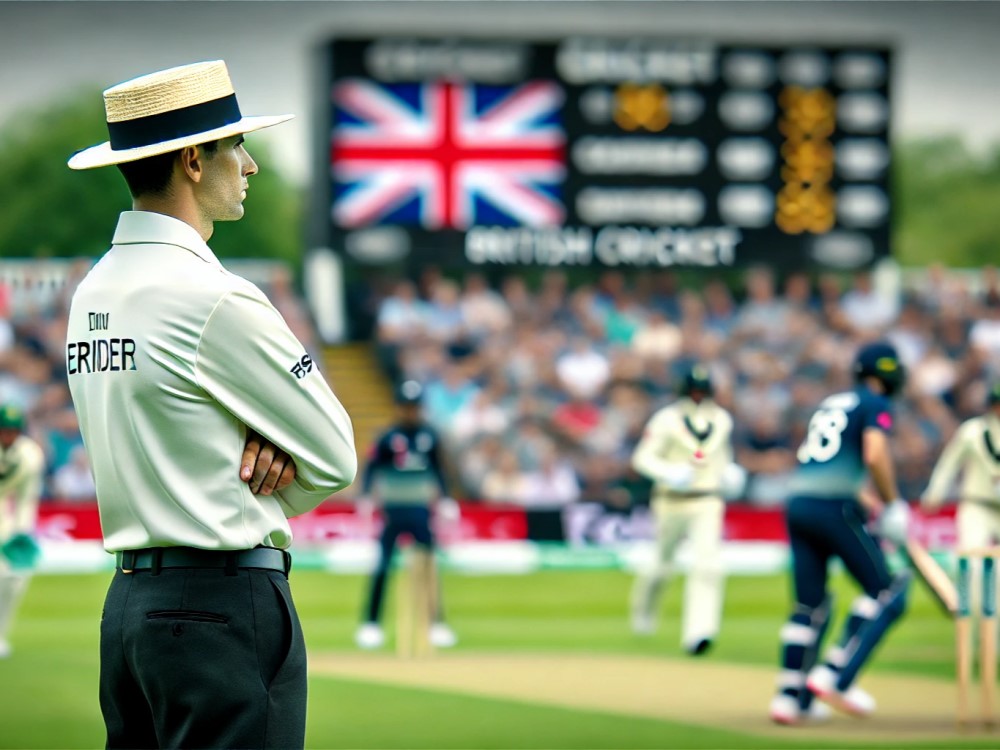
Dickie Bird is one of the most iconic and respected cricket umpires in the history of the game. Born Harold Dennis Bird in 1933, he began his umpiring career in 1970 and quickly gained a reputation for his fairness and keen eye for detail. Bird officiated in 66 Test matches and 69 One Day Internationals (ODIs) before retiring in 1996. His approachable demeanor and consistent decision-making earned him immense respect from players, officials, and fans alike.
Bird’s career was marked by several notable moments, including his officiating in three consecutive Cricket World Cup finals in 1975, 1979, and 1983. His ability to remain calm under pressure and make accurate decisions in critical situations made him a standout figure on the field. Bird’s autobiography, “Dickie Bird: My Autobiography,” became a bestseller, further cementing his status as a cricketing legend. His dedication to the game and his contributions to cricket umpiring have left an indelible mark on the sport.
Bird’s legacy extends beyond his umpiring career. He has been a mentor to many aspiring umpires and continues to be an ambassador for the sport. His insights and experiences have been invaluable in shaping modern umpiring standards. Bird’s commitment to fairness and integrity has set a benchmark for future generations of umpires, making him a true icon in the history of cricket.
Steve Bucknor
Steve Bucknor, a Jamaican umpire, is another prominent figure in the world of cricket umpiring. Bucknor’s career spanned over two decades, during which he officiated in 128 Test matches and 181 ODIs. Known for his calm demeanor and methodical approach, Bucknor earned the nickname “Slow Death” for his deliberate and thoughtful decision-making process.
Bucknor’s career highlights include officiating in five consecutive Cricket World Cup finals from 1992 to 2007, a testament to his consistency and reliability. His ability to handle high-pressure situations and maintain his composure made him a respected figure among players and officials. Bucknor’s contributions to the sport were recognized with the ICC Umpire of the Year award in 2005 and 2006.
Despite facing criticism and controversy towards the end of his career, Bucknor’s overall impact on cricket umpiring remains significant. His dedication to the sport and his ability to manage the complexities of international cricket have set a high standard for future umpires. Bucknor’s career serves as an example of professionalism and resilience in the face of challenges.
Simon Taufel
Simon Taufel is widely regarded as one of the best cricket umpires of the modern era. The Australian umpire’s career began in 1999, and he quickly rose to prominence with his impeccable decision-making and sharp analytical skills. Taufel officiated in 74 Test matches and 174 ODIs before retiring from on-field duties in 2012.
Taufel’s excellence was recognized with the ICC Umpire of the Year award for five consecutive years from 2004 to 2008. His ability to make accurate decisions consistently, combined with his deep understanding of the game’s laws, earned him immense respect in the cricketing community. Taufel’s attention to detail and commitment to continuous improvement made him a standout umpire.
After retiring from on-field umpiring, Taufel took on the role of ICC Umpire Performance and Training Manager, where he played a key role in developing and mentoring new umpires. His contributions to umpiring education and training have had a lasting impact on the sport. Taufel’s dedication to upholding the highest standards of umpiring and his efforts to improve the system have made him a revered figure in cricket.
Aleem Dar
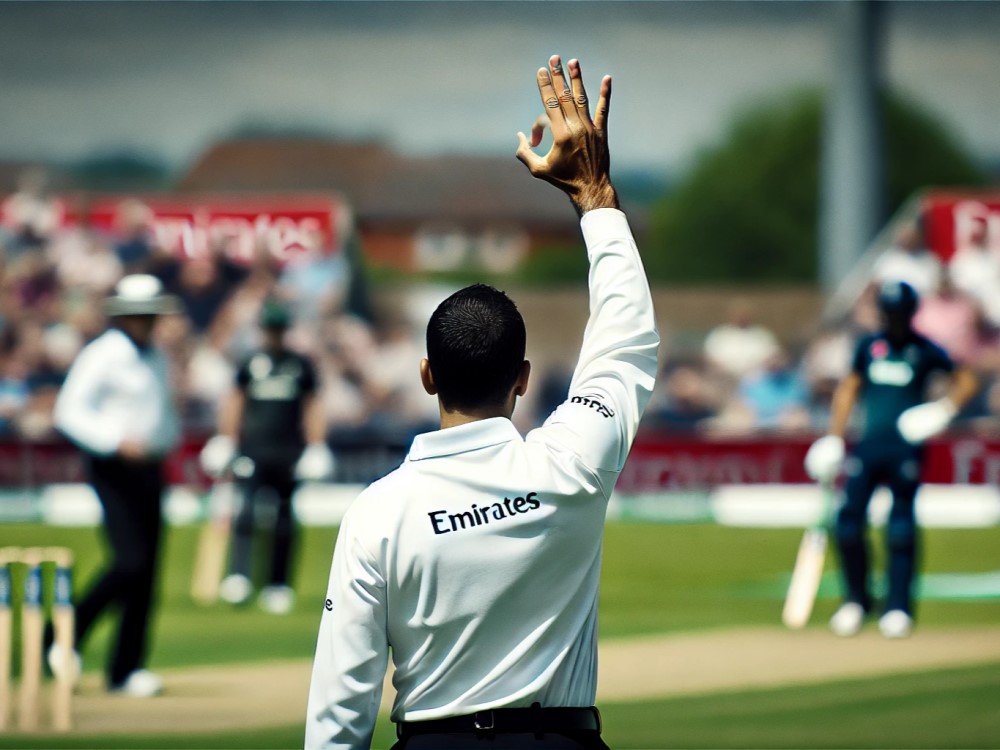
Aleem Dar, a Pakistani umpire, is known for his consistency and fairness in officiating. Dar’s umpiring career began in 2000, and he has since officiated in over 130 Test matches and 200 ODIs. His calm and composed demeanor, coupled with his ability to make accurate decisions under pressure, has earned him widespread acclaim.
Dar’s excellence in umpiring has been recognized with the ICC Umpire of the Year award three times, in 2009, 2010, and 2011. His contributions to the sport extend beyond his on-field duties; he has been involved in various initiatives to promote and develop cricket in Pakistan. Dar’s commitment to the game and his professionalism have made him a role model for aspiring umpires.
One of Dar’s most notable achievements is his longevity and continued excellence in umpiring. His ability to adapt to changes in the game and maintain high standards over a long period is a testament to his dedication and skill. Dar’s impact on cricket umpiring is profound, and his career serves as an inspiration to many in the cricketing world.
David Shepherd
David Shepherd, affectionately known as “Shep,” was a beloved English umpire whose career spanned from 1983 to 2005. Shepherd officiated in 92 Test matches and 172 ODIs, including three Cricket World Cup finals. His charismatic personality and unique style, such as hopping on one leg when the score reached 111, made him a fan favorite.
Shepherd’s reputation for fairness and consistency earned him immense respect from players and officials. He was known for his excellent communication skills and ability to manage the game effectively. Shepherd’s career highlights include his officiating in the historic 2005 Ashes series, which is remembered as one of the greatest cricket series of all time.
Shepherd’s legacy extends beyond his umpiring career. He has been involved in various charitable activities and has contributed to the development of cricket at the grassroots level. Shepherd’s warmth and integrity made him a beloved figure in the cricketing community, and his contributions to the sport continue to be celebrated.
Rudi Koertzen
Rudi Koertzen, a South African umpire, is known for his meticulous decision-making and distinctive slow-motion style when giving a batsman out. Koertzen’s career began in 1992, and he officiated in 108 Test matches and 209 ODIs. His consistency and reliability made him one of the most respected umpires in the game.
Koertzen’s career highlights include officiating in the 1999, 2003, and 2007 Cricket World Cups. His ability to remain calm and composed under pressure earned him the nickname “Slow Death.” Koertzen’s dedication to the sport and his commitment to upholding the highest standards of umpiring have left a lasting impact on the game.
After retiring from international umpiring in 2010, Koertzen continued to contribute to cricket by mentoring young umpires and participating in various cricketing activities. His legacy as one of the most respected and successful umpires in cricket history is well-deserved, and his contributions to the sport are widely recognized.
Billy Bowden
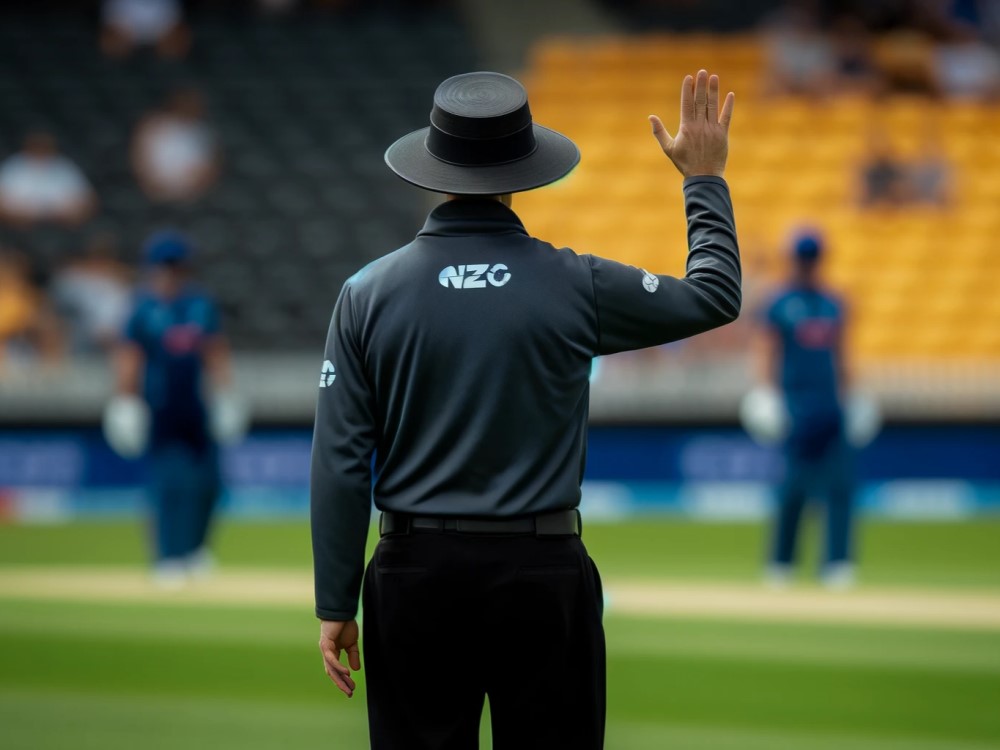
Billy Bowden, a New Zealand umpire, is known for his flamboyant style and unique signaling methods. Bowden’s umpiring career began in 1995, and he has officiated in over 80 Test matches and 200 ODIs. His distinctive style, including his crooked finger of doom when signaling a batsman out, has made him one of the most recognizable umpires in the world.
Bowden’s career highlights include officiating in multiple ICC World Cups and ICC Champions Trophy tournaments. His ability to manage high-pressure situations and his entertaining style have earned him a special place in the hearts of cricket fans. Despite facing health challenges due to arthritis, Bowden’s dedication to the sport remained unwavering.
Bowden’s contributions to cricket extend beyond his on-field duties. He has been involved in various charitable activities and has worked to promote cricket in New Zealand. Bowden’s unique style and commitment to the game have made him a beloved figure in the cricketing community, and his legacy as an umpire is celebrated globally.
Daryl Harper
Daryl Harper, an Australian umpire, had a distinguished career spanning from 1994 to 2011. Harper officiated in 95 Test matches and 174 ODIs, earning a reputation for his fairness and consistency. His ability to make accurate decisions and manage the game effectively made him one of the most respected umpires in cricket.
Harper’s career highlights include officiating in the 1999 and 2003 Cricket World Cups and the 2007 ICC World Twenty20. His calm demeanor and meticulous approach to umpiring earned him praise from players and officials alike. Harper’s commitment to upholding the highest standards of the game has made him a respected figure in the cricketing world.
After retiring from international umpiring, Harper continued to contribute to the sport by mentoring young umpires and participating in various cricket-related activities. His dedication to the game and his impact on cricket umpiring are widely recognized, and his career serves as an inspiration to many aspiring umpires.
Kumar Dharmasena
Kumar Dharmasena, a former Sri Lankan cricketer turned umpire, has made significant contributions to the world of cricket umpiring. Dharmasena’s umpiring career began in 2009, and he has since officiated in over 70 Test matches and 110 ODIs. His unique perspective as a former player has added depth to his umpiring skills, making him one of the most respected umpires in the game.
Dharmasena’s career highlights include officiating in the 2015 and 2019 ICC Cricket World Cups, including the dramatic final of the 2019 World Cup. His ability to make critical decisions under pressure and his understanding of the game’s nuances have earned him praise from players and officials. Dharmasena’s contributions to cricket extend beyond his on-field duties; he has been involved in various initiatives to promote and develop cricket in Sri Lanka.
Dharmasena’s impact on cricket umpiring is significant, and his career serves as a testament to his dedication and skill. His ability to balance fairness and accuracy with a deep understanding of the game has made him a highly respected figure in the cricketing community.
The Lasting Impact of Cricket Umpires on the Sport
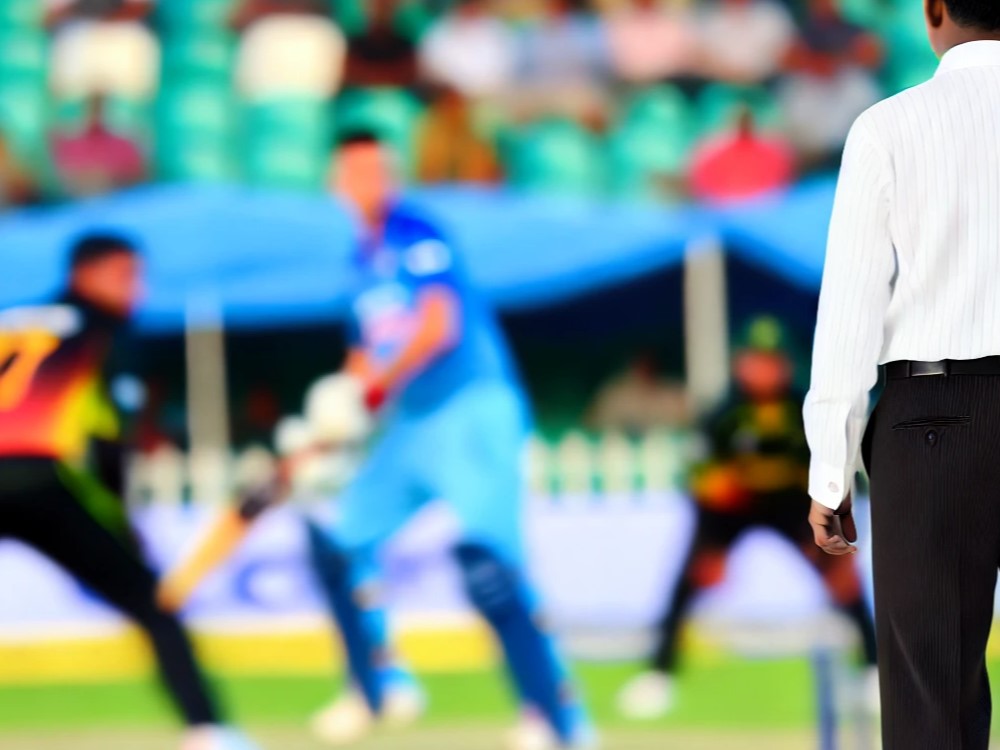
Cricket umpires play an essential role in ensuring the fairness and integrity of the game. The most successful umpires, such as Dickie Bird, Steve Bucknor, Simon Taufel, Aleem Dar, David Shepherd, Rudi Koertzen, Billy Bowden, Daryl Harper, and Kumar Dharmasena, have distinguished themselves through their exceptional skills, unwavering fairness, and ability to handle pressure. Their contributions to cricket have left a lasting impact on the sport, setting high standards for future generations of umpires.
These umpires have not only excelled in their on-field duties but have also contributed to the development and promotion of cricket through mentoring, education, and involvement in various initiatives. Their dedication to the game and their commitment to upholding the highest standards of umpiring have made them respected and celebrated figures in the cricketing world. Through their mentorship, they have helped to shape the careers of many aspiring umpires, passing on valuable knowledge and expertise.
The ability of these umpires to make critical decisions under immense pressure has been crucial in maintaining the integrity of the sport. Their consistent and fair judgment has earned them respect from players, coaches, and fans alike. The careers of these umpires serve as a testament to the importance of integrity, fairness, and professionalism in cricket umpiring, qualities that are essential for the credibility of the game.
Furthermore, the involvement of these umpires in various cricketing initiatives and educational programs has significantly contributed to the sport’s growth. They have played pivotal roles in improving umpiring standards globally, ensuring that the game is played fairly and competitively at all levels. Their contributions have helped to enhance the overall quality of cricket, making the sport more enjoyable and equitable for everyone involved.
As cricket continues to evolve, the legacy of these iconic umpires will continue to inspire and guide the next generation of cricket officials. Their impact on the sport is profound, and their careers serve as a blueprint for what it means to be an exemplary umpire. The lessons learned from their professionalism, decision-making skills, and dedication to fairness will continue to shape the future of cricket umpiring.
The impact of cricket umpires on the sport is immense. The most successful umpires have set high standards through their exceptional skills and unwavering commitment to fairness. Their contributions have not only ensured the integrity of the game but have also played a crucial role in the development and promotion of cricket worldwide. As we look to the future, the legacy of these great umpires will continue to inspire and g

